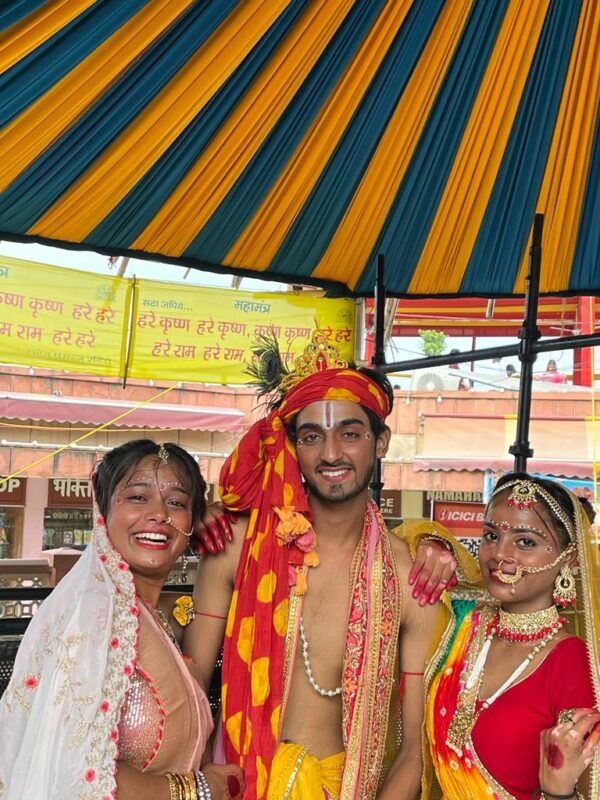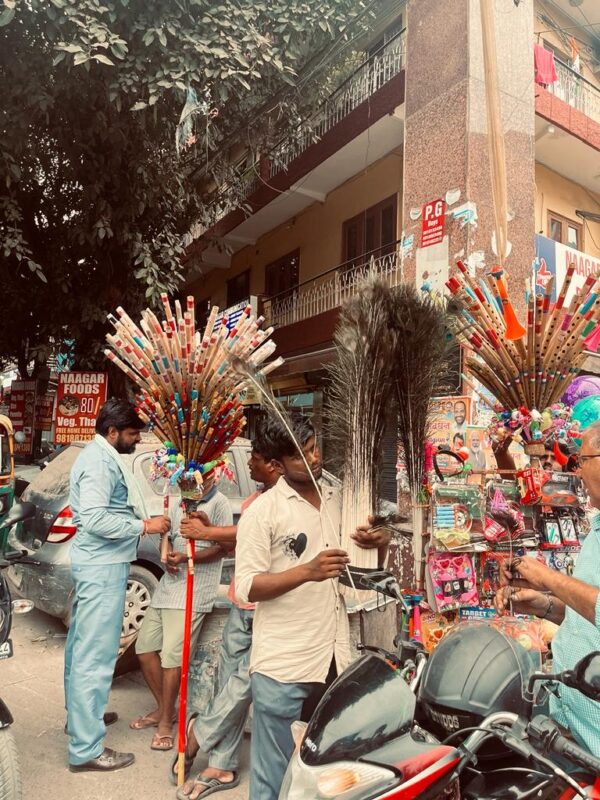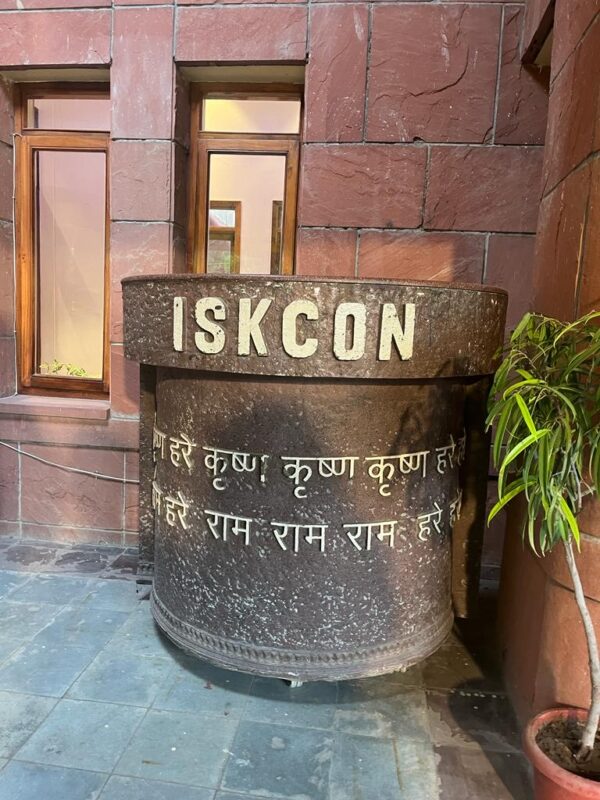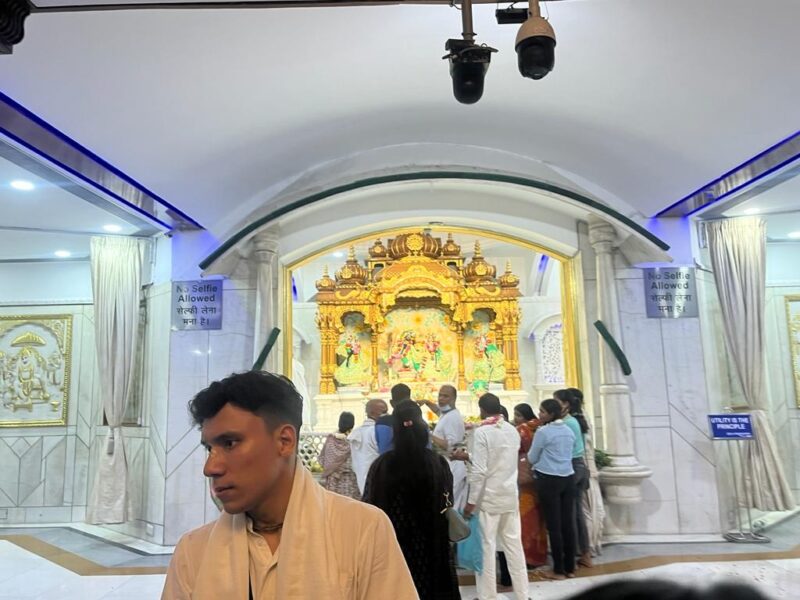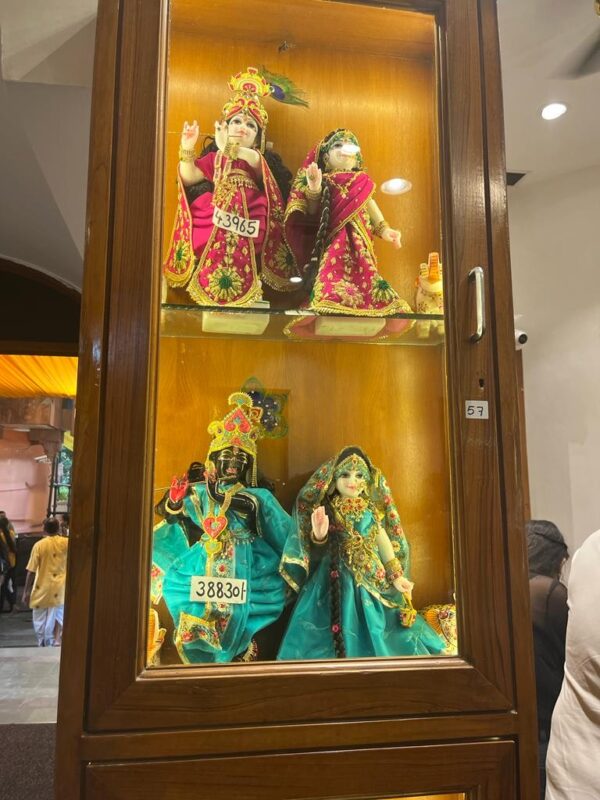Children dressed as Lord Krishna, men adorned with tilak, and women sporting tiny dots on their eyebrows danced joyfully to the bhajans and melodious Hare Krishna chants as they celebrated Janmashtami, observed on September 6-7.
Janmashtami is a Hindu festival that celebrates the birth of Lord Krishna, who is considered one of the most beloved and revered deities in Hinduism. It typically falls on the eighth day (Ashtami) of the Krishna Paksha (dark fortnight) in the month of Bhadrapada in the Hindu lunar calendar, which usually corresponds to August or September.
In Delhi NCR, the atmosphere was brimming with devotional songs. Devotees of all ages and backgrounds joined hands in reverence, creating a tapestry of unity and spiritual fervor.
Near Kalkaji Mandir, devotees of all ages and social backgrounds carried peacock’s feathers, a metaphor for the devotion of Lord Krishna, in their bags, as they commuted to nearby temples and relatives’ homes to celebrate the festival.
“Janmashtami holds a special place in my heart. Krishna’s life story, especially his childhood antics, brings a smile to my face. It shows that divinity can be playful and relatable,” said Shikhar, a 17-year-old devotee present in the ISKCON temple in East of Kailash.
The temple served as a focal point for the faithful. Devotees gathered there to engage in prayers, meditation, and artistic performances, transforming the temple grounds into a space of spiritual celebrations.
Lavish decorations and the harmonious melodies of traditional instruments enhanced the atmosphere.
“Janmashtami encourages us to live moral lifestyles by serving as a reminder of Lord Krishna’s everlasting teachings. It’s heartening to see so many individuals embracing these beliefs,” said a priest at the ISKCON temple.
While devotion was at the core of the celebrations, the culinary delights also held a special place in the hearts of the attendees.
The Makhan Mishri, a delectable mixture of churned butter and crystallised sugar, is a beloved prasad, reminiscent of Lord Krishna’s love for butter during his childhood. Devotees also enjoyed Panchamrit, made of milk, yogurt, honey, ghee, and sugar, which is associated with the belief that it purifies the soul and brings good fortune.
For Piyush Bansal, 19, the food distributed during the festival serves as a reminder that life is an amalgam of various experiences and feelings.
“Every ingredient could signify an emotion,” he said. “And every emotion is equally important.”
In addition to these offerings that are exclusive of the festival, a variety of desserts including laddoos, pedas and kheer are lovingly prepared and presented to Lord Krishna, as a part of the ritual, before being distributed among the devotees.
Sanjay Aggrawal, 46, owner of Aggrawal sweets in Badarpur area, shared, “Using traditional recipes that have been handed down through the years, we begin making these delights far in advance. Being a part of this heritage is an honor.”
Beyond the sweets, worshippers also prepared a sumptuous feast that included savory dishes such as chana masala, poori and aloo sabzi.
Festival spirit was palpable throughout the city, with devotees showing faith in prayers and culinary customs.
For Naman, a 36-year-old street vendor, Janmashtami is a unique day.
“Although I don’t make much money from selling these balloons and basuris (flutes), it makes me happy to see smiles on the faces of children when they play with them. I feel I’m serving happiness in my own way,” he said.
